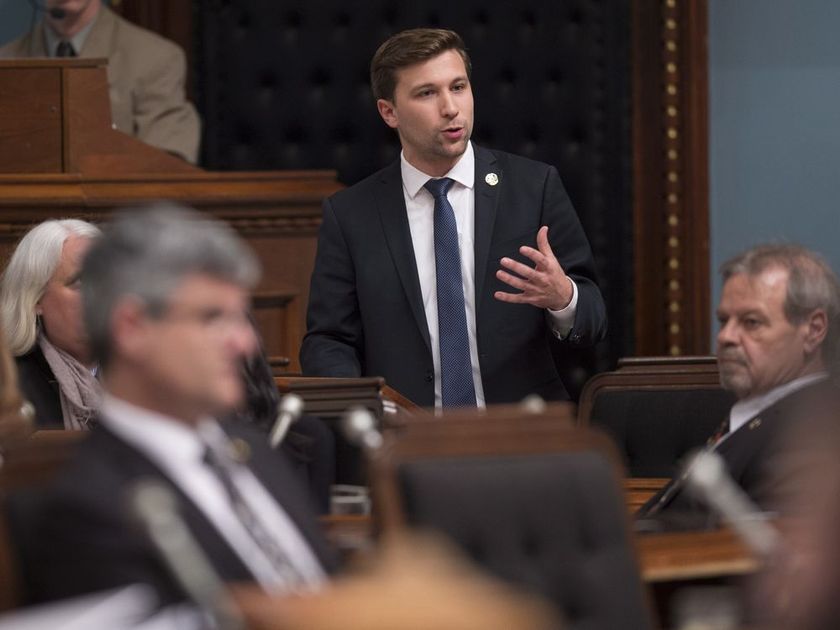In this series of columns, one-time Alliance Quebec president and media personality Royal Orr reflects on his relationship with his second language.
To find the head office of Québec solidaire, you have to really, really want to find the head office of Québec solidaire.
It’s a short walk from the Berri-UQAM métro station, but after you identify the right building, you have to go down a side alley and then a few steps along a back alley before you see the home of Quebec’s third opposition party.
Once inside, there’s a very pleasant receptionist and a free cup of coffee as you wait, which I guess is what you’d expect at a minimum from socialists. And there were lots of friendly young political attachés milling about as I waited to interview the friendly young co-spokesperson for Québec solidaire and MNA for Gouin, Gabriel Nadeau-Dubois.
I first met GND (as he’s known among journalists) last summer at an event at Bishop’s University. Bernard St-Laurent was also in the room — what that guy knows about Quebec politics is more than about 50 of the rest of us put together. After a lively presentation by Nadeau-Dubois, Bernie said to me that he thinks GND is the most gifted politician in Quebec since René Lévesque.
As a dyed-in-the-wool federalist, I’m always nervous when a powerful new voice for independence arises. So I wanted to get to know the young politician a bit better and to hear what he had to say about language, diversity and the future of Quebec and Canada. I asked for an interview and he accepted quickly.
We sat in a small boardroom. Nobody else present. My voice recorder was switched on with his permission. And he proceeded to do what he does with great skill: talk. He was a political spokesperson in full campaign mode, but he was also thoughtful, risk-taking and angry as we discussed a range of issues.
Thoughtful: “It’s not by just breathing the air over Quebec that you develop a taste for or a commitment to French. … The Catholic Church and its institutions protected French for generations; then we built new secular institutions in the ’60s and ’70s. … The biggest threat to French in Quebec right now isn’t English or Islam, but neo-liberal policies of austerity and budget slashing (for these institutions).”
Risk-taking: Talking about the French language and Québécois identity, he said the simplistic version of Quebec and Canadian history is of French-speaking people as “victims.” In reality, French has “un double statut” in our history as a language and culture that was “both colonized and colonizing,” and the ethnically “French-Canadian” community is not “exempt from being discriminatory and racist.” This “balanced story” is much harder to tell, but must be recounted to build more respect for diversity, which is essential for Quebec’s future.
And finally, angry: Nadeau-Dubois was summing up what he sees as his basic political goal: trying to give voice to a new generation, finding a balance between a commitment to protecting Quebec’s traditions, its language and its culture, and his strong conviction to be anti-racist and inclusive. But then he suddenly rounded on François Legault, coming up off his chair with a passion and energy that was something to behold.
“When I hear François Legault suggest even the possibility of a values test, classifying ‘real’ and ‘false’ Quebecers,” he said, “I am shocked. … It enrages me. … I’m staggered by it. … You can see why I joined Québec solidaire and not another opposition party. We will never shy away from defending l’exception culturelle Québécoise, but we will remain absolutely inflexible in our fight against racism, and for diversity.”
As I made my way out the door and back up the alley to Ontario St., I was grateful to have heard a young, progressive voice strongly defending diversity and inclusiveness in our province. But I was also a bit unsettled that maybe Bernie was right and that Nadeau-Dubois could very well be the next René Lévesque or Lucien Bouchard in the struggle for the future of Quebec.






























